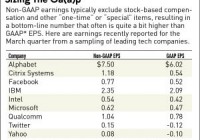Yahoo Reportedly Selling Huge Silicon Valley Site To Chinese Firm
Yahoo ( YHOO ) has reached a deal to sell a 48.6-acre undeveloped site in Santa Clara, Calif., near the heart of Silicon Valley and four miles from the company’s Sunnyvale headquarters, to Chinese tech firm LeEco, according to the Silicon Valley Business Journal . Yahoo has said that as part of its restructuring efforts it might sell real estate, and the Business Journal reported in December that Yahoo was shopping the site. The deal has not yet closed, says the report. The purchase indicates big growth plans for LeEco, hich makes phones, TVs, mountain bikes and soon electric cars, according to the report. The Web portal paid $106 million for the land in 2006, back when Yahoo’s revenue was still growing and the property was seen as having the potential to accommodate more than 12,000 workers, according to the report. The site is near the $1.3 billion Levi’s Stadium, home of the San Francisco 49ers football team and site of last February’s Super Bowl. Yahoo received approval to build up to 3 million square feet of office or research and development space on the site, in 13 buildings, but never began construction. SunTrust Robinson Humphrey said in an industry report this month that Yahoo owns more than 1 million square feet of building space and that its real estate could be worth $1 billion. Yahoo stock closed up 1 cent at 36.60 on the stock market today . Yahoo stock has more than doubled since the company hired Marissa Mayer, who had been a top executive at Alphabet ( GOOGL ) unit Google, as CEO in July 2012. But she’s been unable to spark significant earnings and revenue growth, and Yahoo has struggled to build online-ad and mobile-ad revenue vs. rivals Google and Facebook ( FB ), among others. Yahoo last week reported Q1 earnings and revenue that topped Wall Street expectations, but its Q2 revenue outlook lagged analyst expectations. For Q2, the company forecast revenue of $1.05 billion to $1.09 billion, down 14% at the midpoint and below consensus views of $1.102 billion. Yahoo reportedly had set a deadline of April 18 for bids by potential acquirers, with Verizon Communications ( VZ ), which owns AOL, rumored to be among the most active bidders. Mayer has said only that progress is being made. On Wednesday, in what Mayer called a “constructive resolution,” the troubled Web portal announced it reached an agreement with activist investor Starboard Value to add four new independent directors to the company’s board. In March, Starboard proposed replacing Yahoo’s entire nine-member board with its own slate, saying Yahoo’s current management team and board had “repeatedly failed shareholders” and shouldn’t be in charge of a strategic review of Yahoo’s core search and display ad business or determine the fate of Yahoo’s 15% stake in China e-commerce giant Alibaba ( BABA ) and its holdings in Yahoo Japan. Under the agreement announced Wednesday, Starboard has withdrawn its director nominees. Instead, Yahoo will add four independent directors, including Starboard CEO and Chief Investment Officer Jeffrey Smith.
